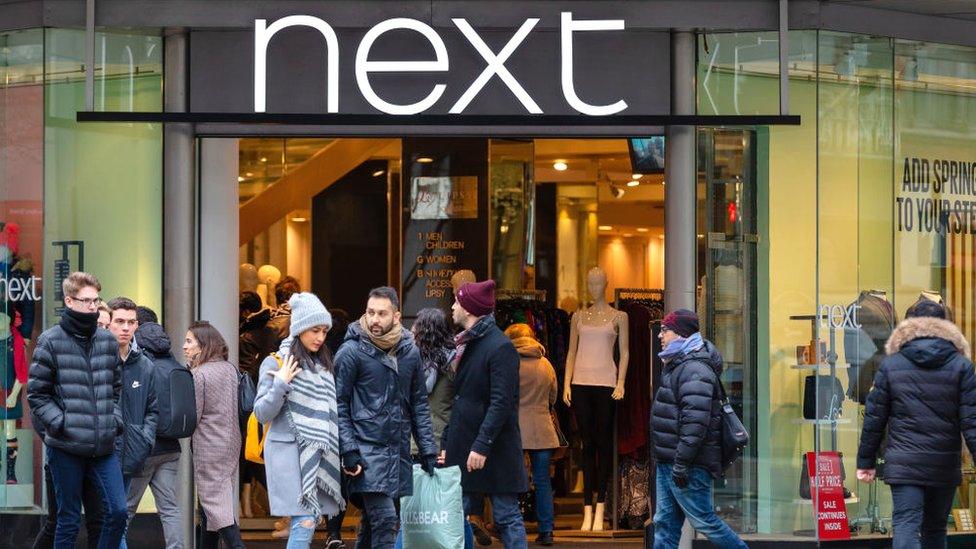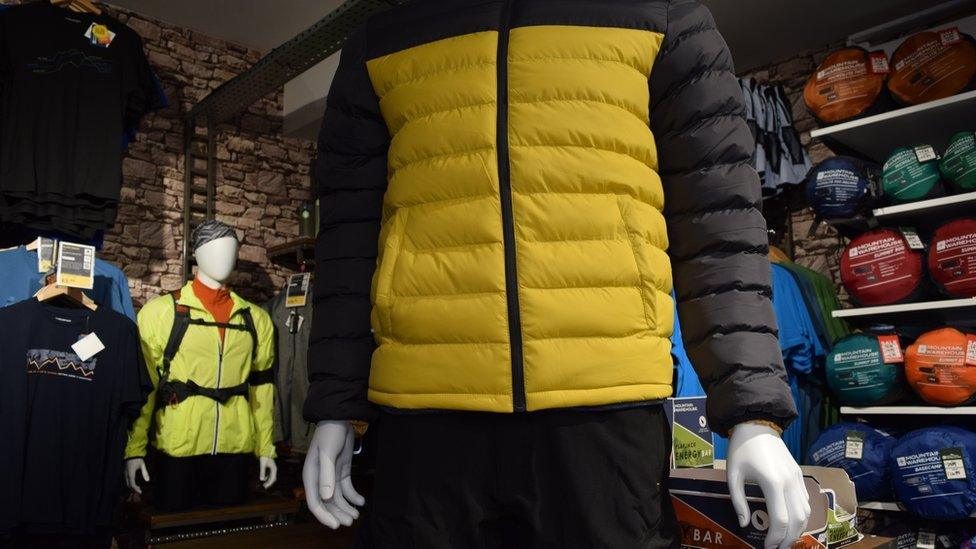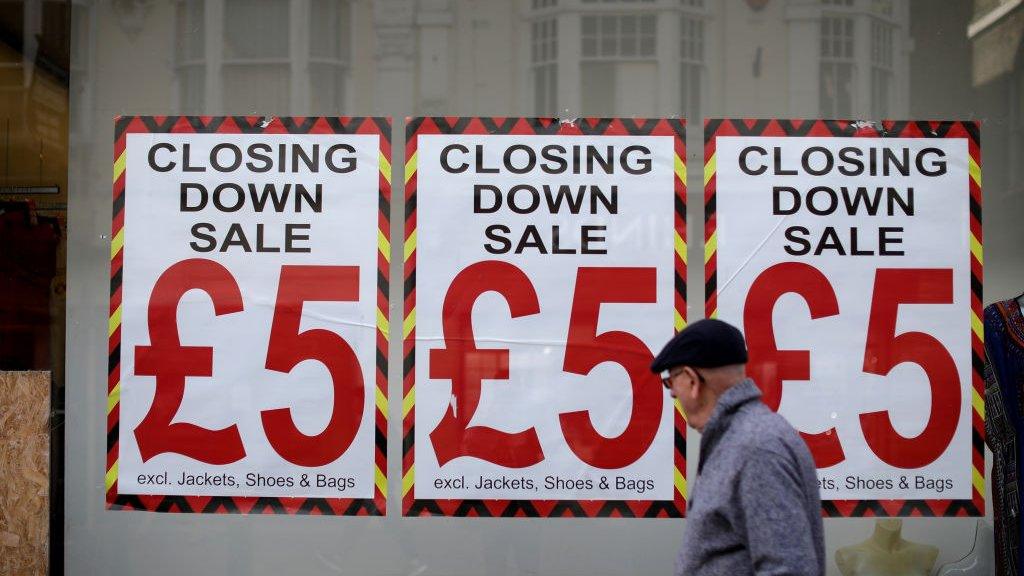Next lifts profit forecast after Christmas sales boost
- Published

High Street retailer Next has increased its profit forecast after enjoying better than expected sales over the Christmas trading period.
The company's full-price sales rose by 5.2% from 27 October to 28 December, 1.1% ahead of its own expectations.
It said that colder weather this November might have helped its sales performance.
The firm now expects an annual profit of £727m, up by £2m - and an increase of 0.6% on the last year.
Next expects sales to grow 3.9% over the current financial year.
'Impressive' performance
Next is the first of the big UK retailers to report on how trading went over Christmas, which is a crucial trading period for the sector.
The retailer's good performance was boosted by an increase in online sales, which rose by 15.3% over the three-month period.
Richard Lim, chief executive of Retail Economics, said: "This was an impressive end to the year as their outstanding online business continues to set them apart from the competition.
"The retailer is benefiting from years of investment in their digital proposition, continually evolving their business model to meet shoppers' heightened expectations."
However, while Next's online sales were strong, the continued shift away from the High Street was reflected by the fact that in-store sales saw a decrease of 3.9%.
According to recent data by retail analyst Springboard, overall footfall in November on UK High Streets fell by 4.3%.
It suggested shoppers might have been put off by heavy rainfall in the run-up to the festive season.
Retailers including John Lewis, and Marks and Spencer will release their Christmas trading updates next week, as well as the big supermarkets - Tesco, Morrisons and Sainsbury's.
Earlier this week, Next announced that its former chief executive Sir David Jones had died, aged 76.
He led the company for nearly 30 years, and was widely credited with saving the retail giant from collapse in the 1980s.
- Published2 January 2020

- Published29 December 2019
